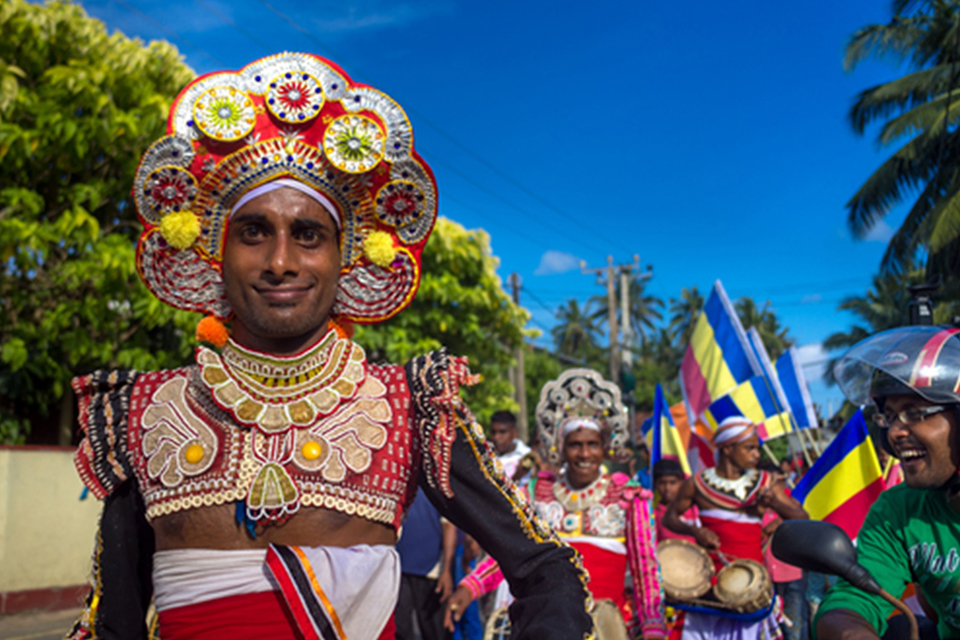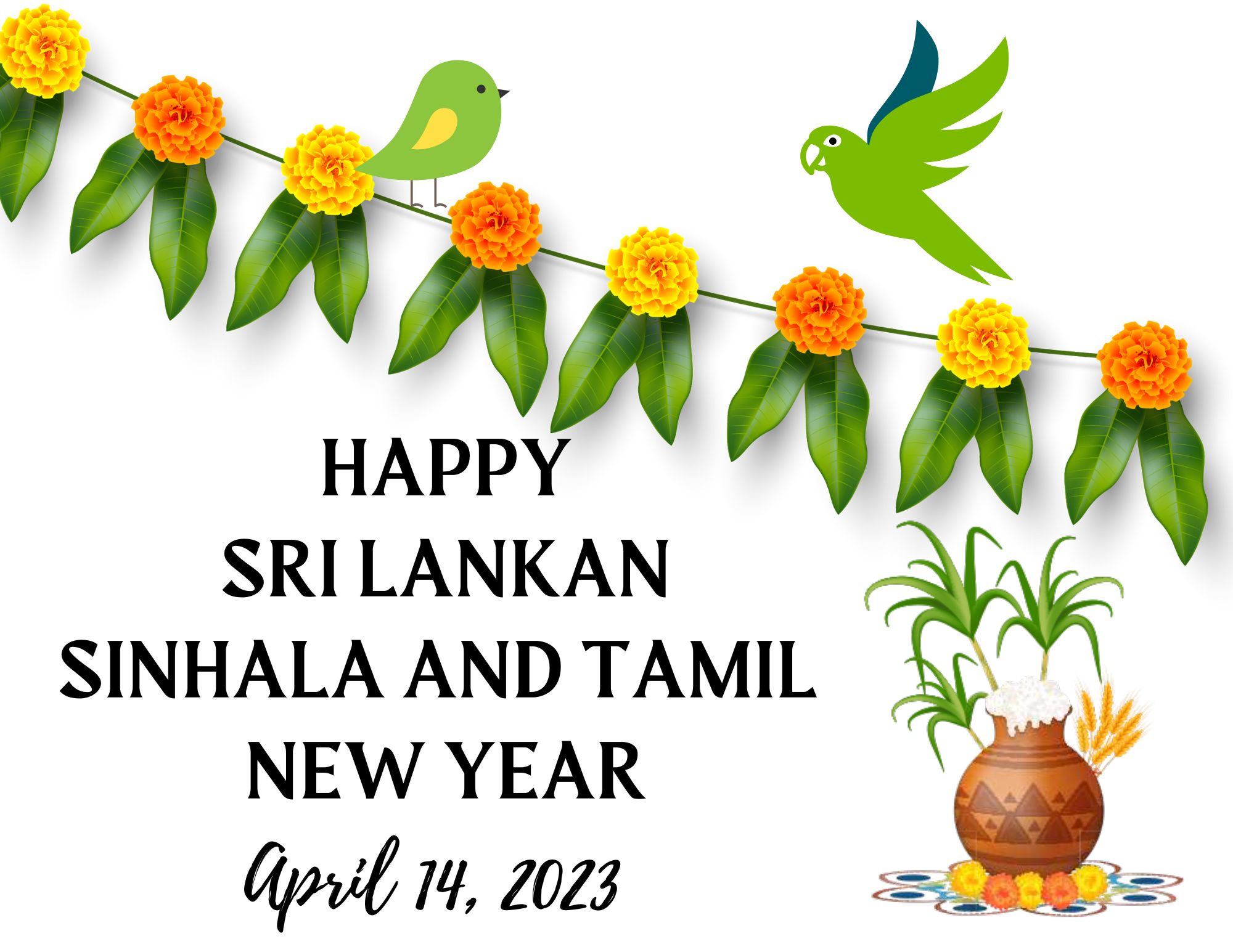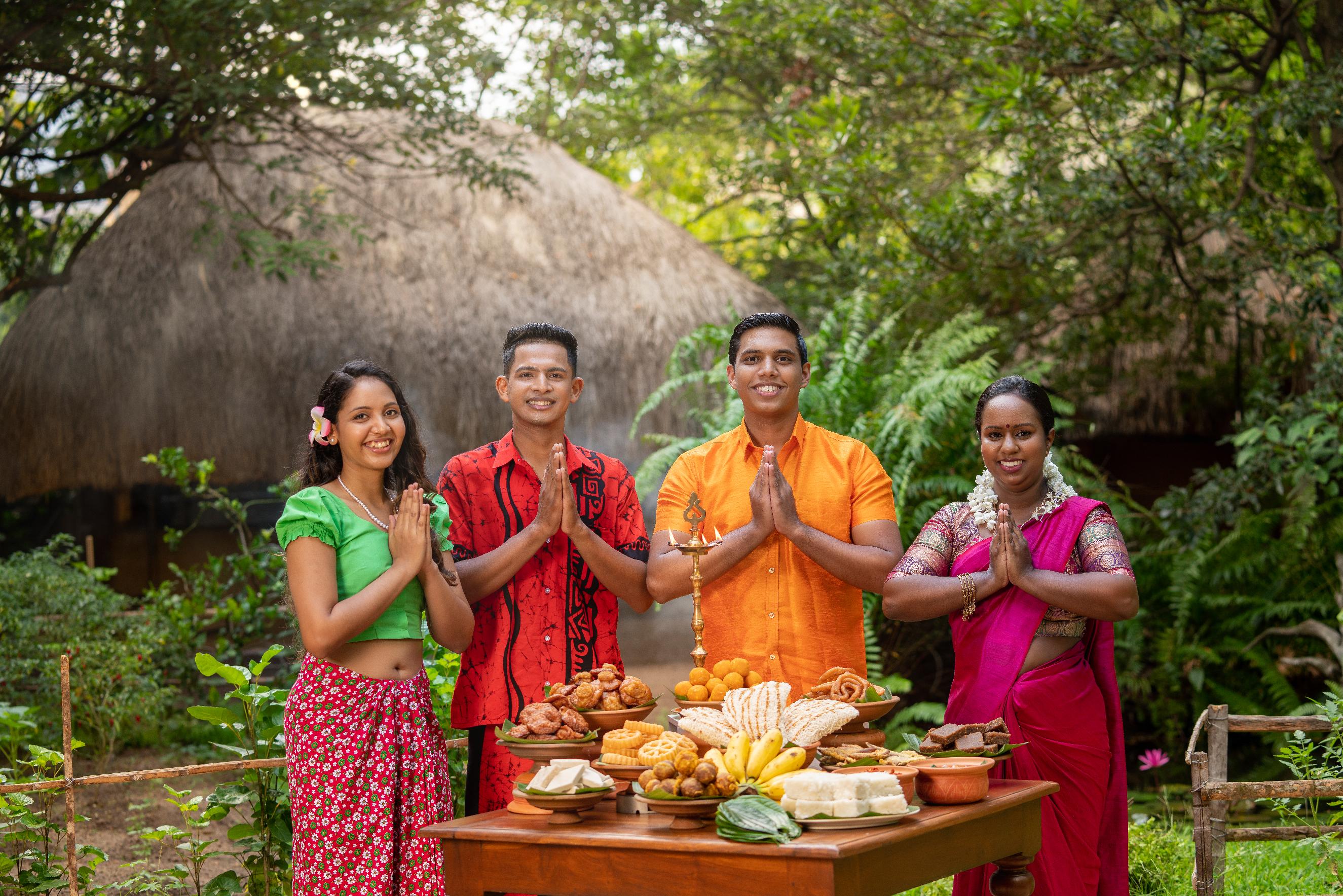A Celebration of Renewal: Unveiling the Significance of Sri Lanka’s New Year 2025
Related Articles: A Celebration of Renewal: Unveiling the Significance of Sri Lanka’s New Year 2025
Introduction
With enthusiasm, let’s navigate through the intriguing topic related to A Celebration of Renewal: Unveiling the Significance of Sri Lanka’s New Year 2025. Let’s weave interesting information and offer fresh perspectives to the readers.
Table of Content
A Celebration of Renewal: Unveiling the Significance of Sri Lanka’s New Year 2025

Sri Lanka, an island nation steeped in rich cultural heritage, observes its New Year with a vibrant tapestry of traditions and festivities. The Sinhala and Tamil New Year, known as "Aluth Avurudda" in Sinhala and "Puthandu" in Tamil, is a time of renewal, reflection, and joyous celebration. While the exact date varies annually, it typically falls in mid-April, marking the transition from the old solar year to the new.
This auspicious occasion is deeply rooted in the country’s agricultural calendar, coinciding with the end of the harvest season and the beginning of a new planting cycle. It is a time for farmers to celebrate their hard work and prepare for the year ahead. However, the significance of the New Year extends far beyond agriculture, encompassing a profound spiritual and cultural significance for Sri Lankans.
A Tapestry of Traditions
The celebrations are marked by a unique blend of rituals, customs, and festivities that have been passed down through generations. The day is dedicated to ushering in good fortune, prosperity, and happiness for the coming year. Key elements of the New Year celebration include:
1. The Auspicious Time: "Nonagathaya"
The exact moment of the New Year, determined by astrological calculations, is known as "Nonagathaya." This precise time marks the transition from the old year to the new, and all activities cease until the arrival of the auspicious moment.
2. The Ritual of "Anomada":
A crucial tradition is the "Anomada," a symbolic cleansing ritual performed at the stroke of midnight. It involves cleaning and decorating homes, washing oneself with fragrant water, and wearing new clothes, symbolizing the shedding of the past and welcoming a fresh start.
3. The Feast of "Kiribath":
A quintessential part of the New Year celebration is the preparation and consumption of "Kiribath," a traditional milk rice dish. It is believed to bring prosperity and good fortune, and families gather to share this symbolic meal.
4. The Games of "Avurudu":
The New Year festivities are filled with traditional games, such as "Kavi Kade," a word-guessing game, and "Raban," a percussion instrument played during the celebrations. These games foster community spirit and provide entertainment for all ages.
5. The Significance of "Raksha":
"Raksha," the act of offering gifts and blessings to elders, is a cherished tradition. It symbolizes respect and gratitude, strengthening family bonds and fostering intergenerational connections.
6. The Importance of "Charitha":
The New Year is also a time for introspection and reflection. Individuals engage in "Charitha," a practice of examining their past actions and resolving to make positive changes in the coming year.
A Celebration of Unity and Hope
Beyond the specific rituals and traditions, the Sri Lankan New Year holds immense social and cultural significance. It is a time for families and communities to come together, fostering unity and strengthening bonds. The festive atmosphere brings joy and hope, reminding everyone of the resilience and spirit of the Sri Lankan people.
The New Year serves as a reminder of the interconnectedness of life, the importance of family and community, and the power of renewal and hope. It is a time to reflect on the past, embrace the present, and look forward to a brighter future.
FAQs
1. What is the significance of the Sri Lankan New Year?
The Sri Lankan New Year is a time of renewal, reflection, and joyous celebration. It marks the transition from the old solar year to the new, coinciding with the end of the harvest season and the beginning of a new planting cycle. It is deeply rooted in the country’s agricultural calendar and holds profound spiritual and cultural significance for Sri Lankans.
2. When is the Sri Lankan New Year celebrated?
The exact date of the New Year varies annually, but it typically falls in mid-April, based on astrological calculations.
3. What are some of the key traditions associated with the Sri Lankan New Year?
Key traditions include the "Anomada" cleansing ritual, the preparation of "Kiribath" milk rice, traditional games like "Kavi Kade" and "Raban," the act of offering gifts and blessings to elders ("Raksha"), and the practice of introspection and reflection ("Charitha").
4. What is the significance of "Nonagathaya"?
"Nonagathaya" is the precise moment of the New Year, determined by astrological calculations. It marks the transition from the old year to the new, and all activities cease until its arrival.
5. What is the role of "Kiribath" in the New Year celebrations?
"Kiribath" is a traditional milk rice dish that is believed to bring prosperity and good fortune. Families gather to share this symbolic meal during the New Year celebrations.
6. How does the Sri Lankan New Year promote unity and hope?
The New Year festivities bring families and communities together, fostering unity and strengthening bonds. The festive atmosphere brings joy and hope, reminding everyone of the resilience and spirit of the Sri Lankan people.
Tips for Experiencing the Sri Lankan New Year
1. Immerse yourself in the traditions: Participate in the "Anomada" cleansing ritual, prepare or enjoy "Kiribath," play traditional games, and engage in "Raksha" by offering gifts and blessings to elders.
2. Visit cultural events and performances: Attend traditional dance and music performances, which showcase the vibrant cultural heritage of Sri Lanka.
3. Explore the rural areas: Visit villages and experience the authentic celebrations, where traditions are deeply rooted and celebrated with fervor.
4. Sample local delicacies: Indulge in the diverse culinary offerings, including traditional sweets, savory snacks, and regional specialties.
5. Learn about the history and significance: Read about the origins and evolution of the New Year traditions, gaining a deeper understanding of their cultural importance.
Conclusion
The Sri Lankan New Year is a vibrant tapestry of traditions, rituals, and festivities that embody the spirit of renewal, hope, and unity. It is a time for families and communities to come together, celebrate their cultural heritage, and embrace the promise of a new beginning. As the island nation continues to evolve, the New Year remains a cherished tradition, reminding Sri Lankans of their shared history, cultural values, and unwavering resilience. It is a testament to the enduring spirit of the Sri Lankan people, their ability to adapt and thrive, and their unwavering commitment to celebrating life in all its beauty and complexity.








Closure
Thus, we hope this article has provided valuable insights into A Celebration of Renewal: Unveiling the Significance of Sri Lanka’s New Year 2025. We appreciate your attention to our article. See you in our next article!